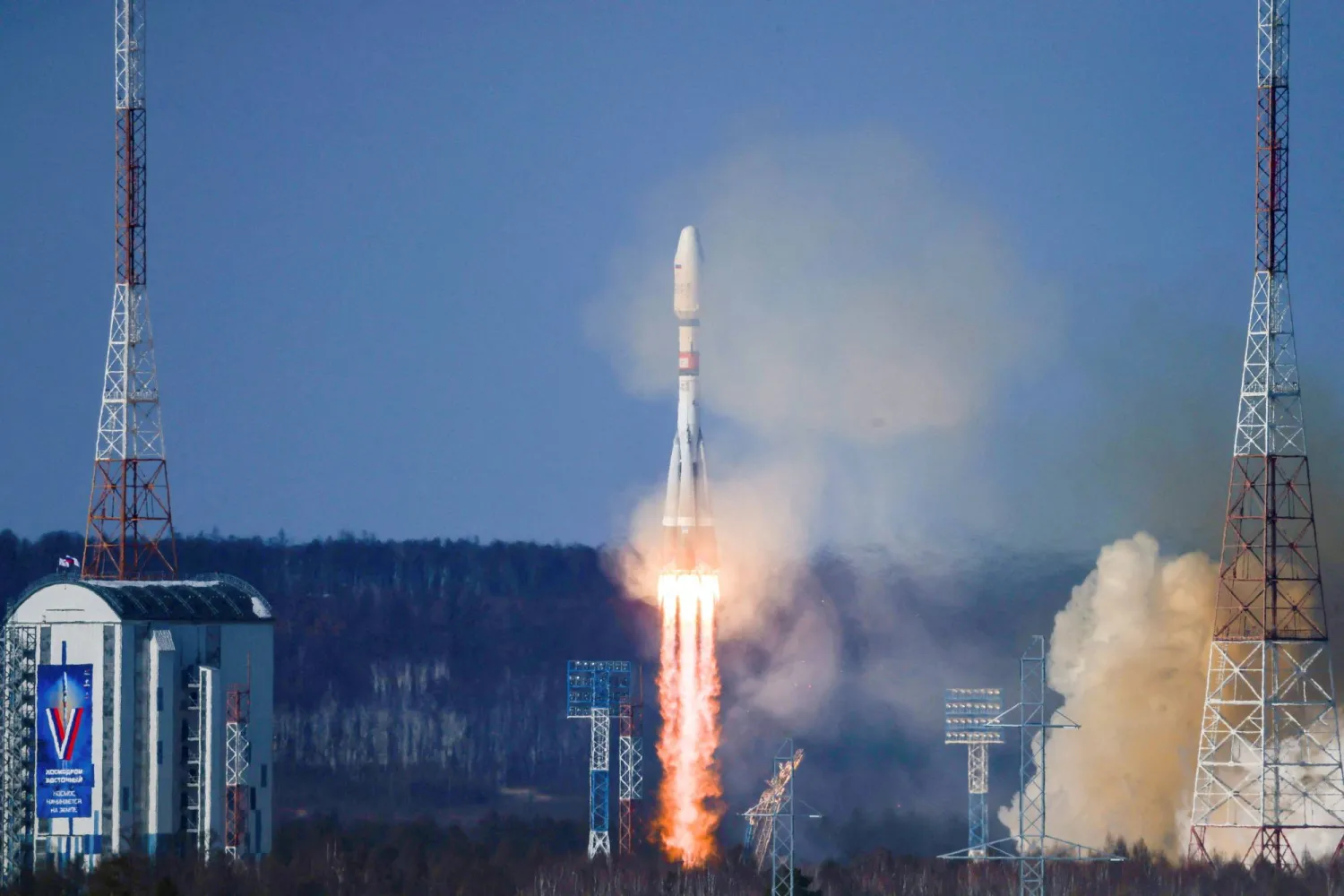Russia launched a Soyuz rocket early on Tuesday carrying two satellites designed to monitor the space weather around Earth and 53 small satellites, including two Iranian ones, Russia's Roscosmos space agency said.
The Soyuz-2.1 launch spacecraft, which lifted off from Russia's Vostochny Cosmodrome, carried two Ionosfera-M satellites, which will become part of the space system for monitoring the Earth's ionosphere, the agency said.
The ionosphere, where Earth's atmosphere meets space, stretches roughly 50 to 400 miles (80 to 644 km) above Earth's surface, according to information provided on NASA's website.
Each Ionosfera-M satellite weighs 430 kg (948 lb) and its working orbit is at an altitude of 820 km (510 miles), according to Interfax news agency.
The system will include in total four of the Ionosfera-M satellites. The next two devices are planned to be launched in 2025, Roscosmos reported.
Among the 53 small satellites are two Iranian satellites, the Kowsar, a high-resolution imaging satellite, and Hodhod, a small communications satellite, as well as the first Russian-Chinese student satellite Druzhba ATURK, Reuters reported.
Russia in February launched into space an Iranian research satellite that will scan Iran's topography from orbit, Iran's state media reported at the time.
Russia Launches Soyuz Rocket with Dozens of Satellites, Including Two from Iran

A Soyuz-2.1b rocket booster with a Fregat upper stage, carrying Russian the Meteor-M spacecraft and 18 Russian and foreign additional small satellites, blasts off from a launchpad at the Vostochny Cosmodrome in the far eastern Amur region, Russia, February 29, 2024. Roscosmos/Handout via REUTERS/File Photo

Russia Launches Soyuz Rocket with Dozens of Satellites, Including Two from Iran

A Soyuz-2.1b rocket booster with a Fregat upper stage, carrying Russian the Meteor-M spacecraft and 18 Russian and foreign additional small satellites, blasts off from a launchpad at the Vostochny Cosmodrome in the far eastern Amur region, Russia, February 29, 2024. Roscosmos/Handout via REUTERS/File Photo
لم تشترك بعد
انشئ حساباً خاصاً بك لتحصل على أخبار مخصصة لك ولتتمتع بخاصية حفظ المقالات وتتلقى نشراتنا البريدية المتنوعة







